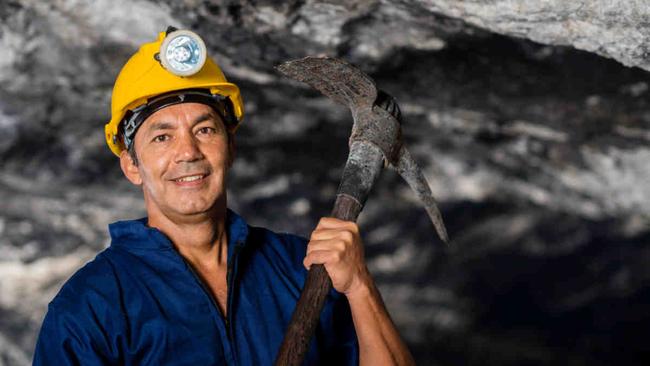The Ethical Investor: How Australia can scale mining output 100x while going green
Australia faces a massive green mining challenge, with tailings and precision tech set to revolutionise the game.

Australia faces huge mining challenge for renewables
Tailings could be the new frontier for mining value
Precision tech also set to revolutionise mining
Australia’s mining sector is facing a monumental task.
To meet the growing global demand for minerals needed for the renewable energy transition, Australia needs to scale up mining by a staggering 100 times – according to a report from mining services expert Hatch.
The challenge? Doing all this while navigating environmental risks, community concerns and public scrutiny.
Incidents such as the outcome for the Bowdens Silver Mine near Mudgee, which faced intense local opposition and had its approval voided by the NSW Court of Appeal, have made it clear: mining in Australia is under the spotlight.
But it’s an even bigger ask when you consider that, in 2022, mining was still responsible for almost a quarter of Australia’s total emissions.
A bold plan to decarbonise mining
Jan Kwak, managing director of Hatch for Australia and Asia, believes the solution is clear: Australia needs a zero-waste, community-focused mining blueprint to not just scale up operations, but to transform the industry.
“Some communities are seriously questioning the benefits of having mines in their backyards, and the only way forward is through genuine consultation and innovation that leaves no one behind,” said Kwak.
“For mining projects to proceed in the face of mounting community resistance, we must adopt a zero-waste, community-focused mining blueprint."
This, he said, includes improving tailings capture, recycling materials, and adopting circular economy principles to drive economic growth while protecting the environment.
Kwak’s push for change echoes Fortescue’s Andrew Forrest, who has made calls for “real zero” emissions. This emphasis is reshaping the conversation about mining’s future.
Tailings and the value of waste
At home, mining giants are moving away from coal to focus on lithium, cobalt, and other minerals essential for the renewable energy revolution.
But with these minerals come new environmental challenges.
Lithium mining, for example, is facing backlash due to its water-intensive processes. Meanwhile, lead mining, like the Bowdens Silver Mine, has sparked outrage over contamination risks.
Now, here’s where it gets interesting: tailings.
These are the byproducts of mining, often seen as waste.
But Kwak argues they’re full of untapped value. “For every tonne of tailings we recover, that’s critical minerals we don’t need to rip out of untouched land.”
For instance, copper tailings can contain rare earth elements used in wind turbines and electric vehicle motors.
In Queensland, trials by Glencore at Mount Isa show reprocessing tailings could cut emissions by up to 30% while recovering valuable materials.
Other materials, like aluminium tailings, are finding new life in construction materials, and lithium brines are being repurposed for industrial uses.
“Tailings recovery isn’t just sustainable – it’s smart business,” said Kwak. “This is a new frontier for resource recovery, and it’s where the industry must head.”
Mining smarter, not harder
The second game-changer? Advanced, precision technologies.
Take in-situ recovery (ISR) – this method dissolves minerals underground and extracts them without digging massive pits. It’s more efficient, uses less water, and causes minimum surface disruption.
ISR is a potential game-changer for the industry, as it could revolutionise mining without the traditional environmental damage.
Then, there’s electro-kinetic methods that use electric currents to target minerals in soil, cutting down on waste and making extraction more efficient.
Trials in Western Australia show ISR can reduce surface disruption even further.
Also read: Machine Earning: The rise of AI in exploration brings tech billions to miners
The circular economy and closing the loop
Kwak makes it clear: the mining sector’s old “take, make, waste” approach is a thing of the past. Communities are no longer willing to tolerate it.
The new way forward is a circular economy, where waste becomes raw material, and every bit of a resource is maximised.
“Slag from steelmaking can be repurposed for road construction. Cobalt residues? They can be turned into batteries."
Even tailings dams could be mined for minerals instead of left to scar the landscape,” said Kwak.
“Circular mining isn’t just about reducing waste - it’s about maximising every resource we touch.
“And this is the pathway to securing Australia’s place in a decarbonised global economy without sacrificing the people or places we rely on.”


